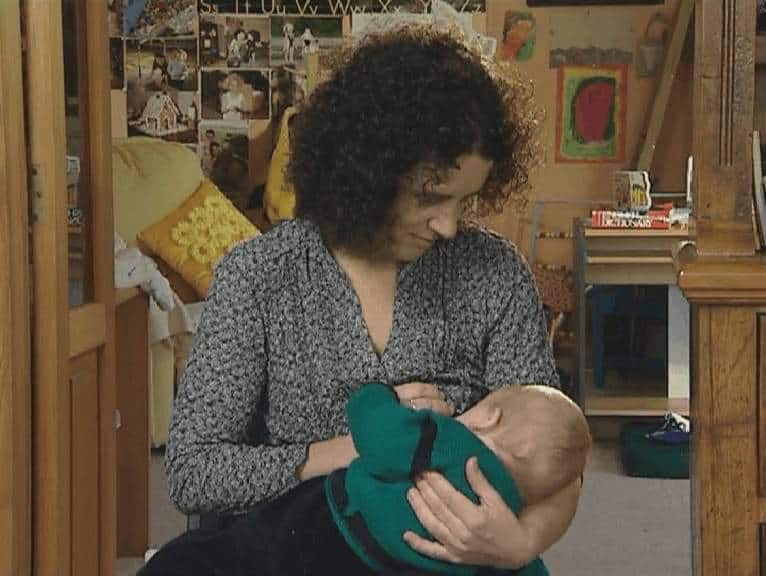The titles, authors and abstracts for papers published in the NZ International Research in Early Childhood Education Journal, Volume 22, No. 2, 2019 are shown below. To read any article a member login is needed – join us if you are not already a member. Many libraries subscribe to the journal so you may be able to view articles through your library’s system.
Order a copy of any article
Type in below the year, volume number and author(s) of the article you wish to order. The price per copy is NZ $19. Once you have completed your order it will emailed to you within 24 hours.
Original Position Paper
Affordability of quality early childhood education and care
Thomas Seagrave
Abstract
The cost of early childhood education and care is a highly visible issue in Australia and many other parts of the world. The Australian media discusses it regularly and government policy and inquiries often seek to address it. Despite the attention on the financial details, the issue itself is not restricted to cost alone but rather a combination of cost, quality and availability of services. After all price could arguably be reduced significantly at the expense of quality by abolition of regulations, child to educator ratios and fair work laws. It is unlikely however that many would find this an adequate solution. Some explanations for this reduced availability of affordable, quality education and care include high educator pay and increased regulation through the National Quality Framework. This paper argues that much of this issue of affordability of quality early childhood education and care stems from the marketisation and the growth of for-profit services.
Key words: Affordability, cost, price, funding, management, regulation, marketisation.
Full reference
Seagrave, T. (2019). Affordability of early childhood education and care. NZ International Research in Early Childhood Education Journal. Special issue presenting early childhood position papers, 22(2), pp. 1 – 8.
Original Position Paper
Early childhood educators’ workplace well-being: A case for using self-determination theory to understand and support workplace well-being in early childhood services
Catherine Jones, Fay Hadley, Manjula Waniganayake and Melissa Johnstone
Macquarie University, New South Wales
Abstract
Current conceptualisations of Early Childhood (EC) educator workplace well-being are problematic due to large gaps in the workplace well-being literature. Gaps include a dearth of research examining healthy well-being, limited qualitative studies to understand the complexity of workplace well-being and a focus on hedonic well-being (happiness at work) without the inclusion of eudaimonic well-being (meaningful work). Moreover, attention in the literature is mainly given to external conditions influencing well-being such as poor pay and working conditions. This article begins with a critique of EC workplace well-being literature and then provides an argument that asserts Self-Determination Theory (SDT) has the potential to provide a more suitable conceptualisation of EC educator well-being. Key principles of both SDT and Early Childhood Education and Care (ECEC) are provided to highlight the suitability of using SDT to understand and also support the healthy well-being of those working in prior to school settings in the Australian ECEC context.
Key words: Self-determination theory, well-being, work-place stress, job satisfaction.
Full reference
Jones, C., Hadley, F., Waniganayake, M. & Johnstone, M. (2019). Early childhood educators’ workplace well-being: A case for using self-determination theory to understand and support workplace well-being in early childhood services. NZ International Research in Early Childhood Education Journal. Special issue presenting early childhood position papers, 22(2), pp. 9 – 17.
Original Position Paper
Screens or no screens: Understanding young children’s use of digital technologies
Maya Robinson-Kennedy
Abstract
Children are accessing digital-technologies at younger ages and at an increasing rate, especially in the home environment. There is growing evidence that the type of digital-technology, the time spent accessing it, and the resulting displacement of other activities, are both the most significant factors to consider and the most frequently overlooked. As a result, young children’s development and wellbeing may be negatively impacted, and learning opportunities missed. Parents and Early Childhood Education and Care (ECEC) educators have different approaches to children’s use of technologies. Parents have reported using screen-time to occupy children and/or manage behaviour. There is also a belief that many digital games and programs are educational. ECEC educators have demonstrated a dearth of knowledge and confidence in implementing technology into the curriculum, and therefore often do not use digital-play in their pedagogy. This paper proposes that in order to harness the potential of digital-technology as a tool for inquiry, creativity, imagination, and play, we must look beyond screen-based devices to technologies that promote children as producers, not consumers, of digital content.
Key words: Digital technology, screen-based learning, digital play, ICT.
Full reference
Robinson-Kennedy, M. (2019). Screens or no screens: Understanding young children’s use of digital technologies. NZ International Research in Early Childhood Education Journal. Special issue presenting early childhood position papers, 22(2), pp. 18 – 25.
Original Position Paper
Nurturing the learning and development of children who are refugees
Phillipa Harris
Abstract
This position paper provides a plea for children who are seeking asylum as refugees to be detained in an environment that supports their health, wellbeing, early education and care. Being detained in a refugee facility can lead children to suffer chronic fear, chaos, unstable access to food and water, and the witnessing of atrocities (Silove, Ventevogel, & Rees, 2017). Children who are refugees usually have suffered traumatic events and are entitled to “recovery and reintegration” in a safe environment that nurtures their health and wellbeing, and where freedom and equality prepare them to prosper as an individual within society. Although Australia is a signatory to the Convention on the Rights of the Child, children being detained in Australian refugee camps are vulnerable to depression, and this experience may cause them to adjust in developmentally dangerous ways (Minas, et al., 2013).
Key words: Refugees, asylum seekers, trauma, children’s rights, wellbeing, vulnerable children.
Full reference
Harris, P. (2019). Nurturing the learning and development of children who are refugees. NZ International Research in Early Childhood Education Journal. Special issue presenting position papers, 22(2), pp. 26 – 34.
Original Position Paper
Prioritising the development of spirituality in early childhood education and care
Nicole Megan Lees
Abstract
Increasingly the inclusion of spiritual learning in early childhood pedagogy is being examined and discussed by many professionals in the field. It presents with a range of definitions and is frequently linked with religion. When applying it to early childhood education and care it can be summarised as experiences and explorations that come from the individual being which embrace connections and relationships. Spirituality encompasses beliefs and endeavours of creativity and curiosity. Studies in spirituality have made links with spiritual connections and learning, and a stronger sense of wellbeing. Those linked with spiritual practices and behaviours showed greater resilience and a greater quality of life. When considering the increasing incidences of poor mental health for young people in a rapidly changing society, spirituality can be viewed as an opportunity to decrease the occurrence of these disorders. Connections between religion and spirituality have created a barrier for its application in a range of services despite its ability to be applied without these inferences. Societies’ interpretations of spirituality are likely to be influenced by these perceived links and until a clearer distinction is made, its inclusion in early childhood education will continue to be superficial. To provide better outcomes for individuals in the future, we need to prioritise and promote the importance of spirituality in early childhood education and care.
Key words: Spirituality, wellbeing, resilience, pedagogy.
Full reference:
Lees, N. M. (2019). Prioritising the development of spirituality in early childhood education and care. NZ International Research in Early Childhood Education Journal. Special issue presenting position papers, 22(2), pp. 35 -42.








